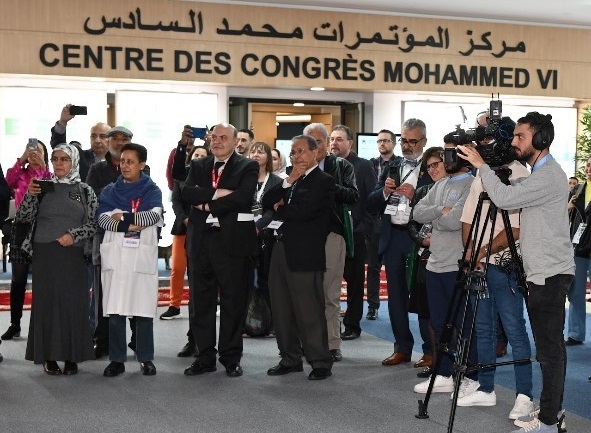
Basim Dubaybo, M.D., vice dean of Faculty Affairs and Professional Development at the Wayne State University School of Medicine, recently served as scientific chair for the Interdisciplinary World Health Congress on Post-Pandemic Readiness.
The congress, held Feb. 4-8 in Casablanca, Morocco, was a collaboration between WSU and host Mohammed VI University of Health Sciences, along with several international institutional sponsors. The event brought together experts to share visions and experiences to address post-COVID-19 challenges, and explore tools and methods to transform health care and community health through innovation and educational reform.
In addition to students and faculty from several Moroccan institutions, nearly 150 people from 24 countries across North and Latin America, Europe, the Middle East, Africa, Asia and Australia attended.
Dr. Dubaybo moderated the plenary session, which included Marcus Zervos, M.D., division head of Infectious Disease at Henry Ford Hospital, and professor of Internal Medicine and co-director of the WSU Center for Emerging and Infectious Diseases, as a key speaker.
The congress featured two WSU-led symposium panels: “The Role of Academic Centers in Pandemic Preparedness” and “Trauma and Stress in First Responders, and Innovative Mixed Reality Technologies for Addressing their PTSD.” Sixteen other sessions addressed public health disciplines, including policy, workforce development, mental health, emergency preparedness, research, artificial intelligence, physical health, health care education, infectious diseases, ethics, global warming and health disparities. Student training workshops included electronic posters and oral presentations, and participants had the opportunity to choose among various sessions to discuss topics and develop recommendations.
“Importantly, participants built on collaborations and sustainable platforms and partnerships for future global health work,” Dr. Dubaybo said.
The congress ended with a roundtable discussion attended by 30 invited leaders representing the participating academic institutions. The attendees evaluated the congress and provided a framework for future educational and research activities and interdisciplinary collaboration.